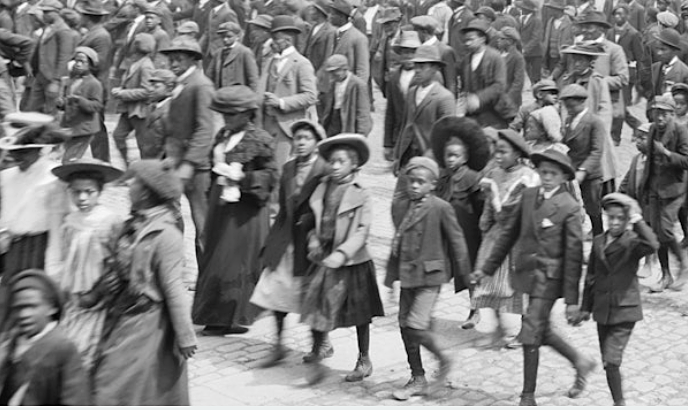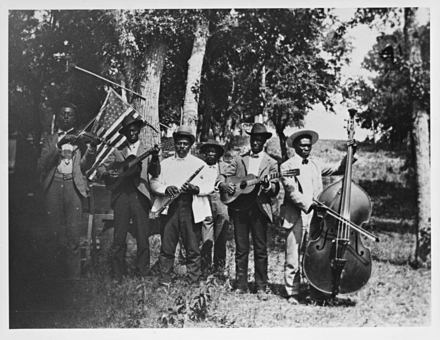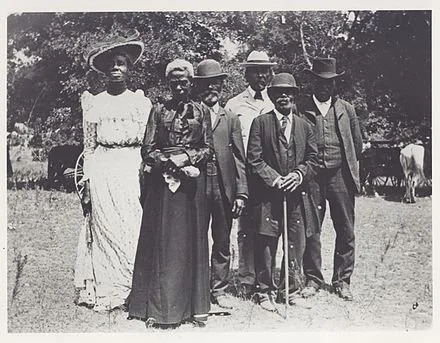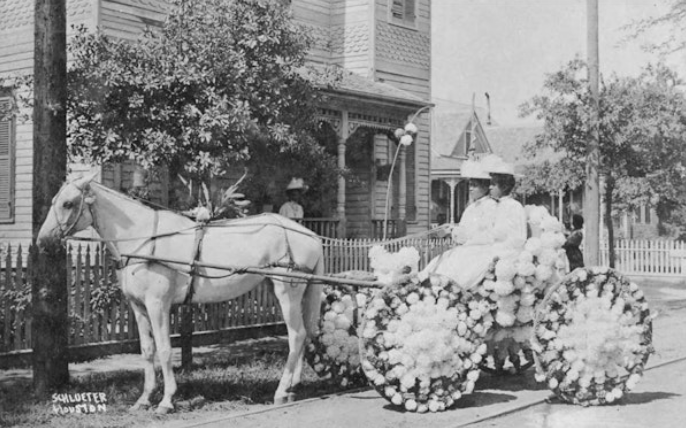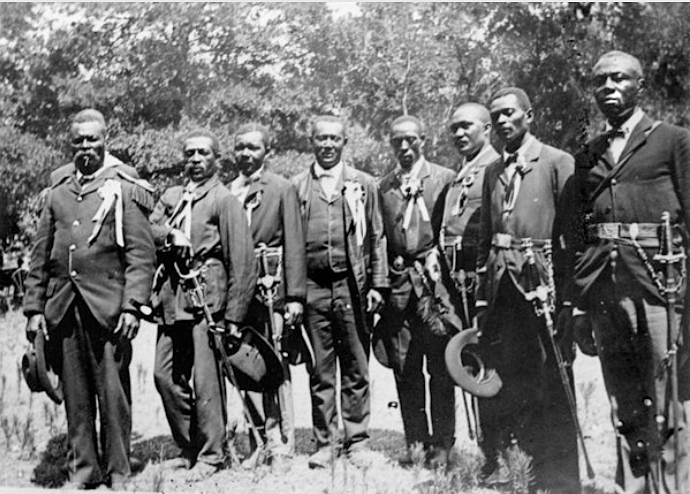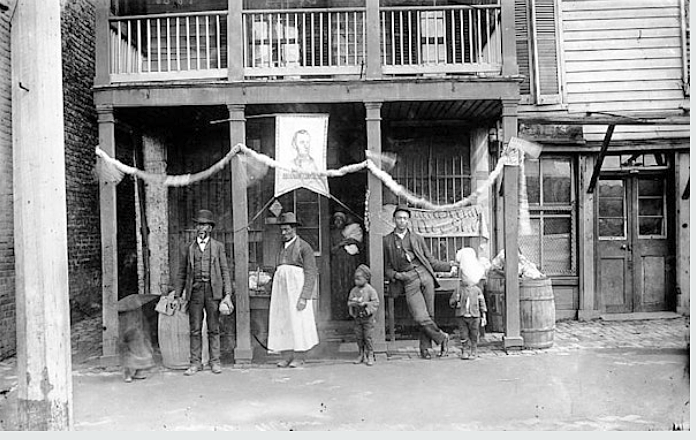What surprised us about Juneteenth?
Greetings
We have been thinking and talking about Juneteenth these past few weeks: what it celebrates, its long, patient history, why most people hadn’t even heard about something so important to Black Americans. Why wasn’t it taught in schools? What brought it into our national consciousness after 150 years, becoming a federal holiday in June 2021? We listened to a podcast, read articles and essays. In our staff meeting, we each offered a ‘what surprised me most’ observation for consideration. Below we share with you some of the ones that resonated and left us curious for more conversation— in a spirit of humility. We have few answers and so much more to discover about this consequential holiday.
Piper Dumont
The struggles remind us of the ferocious spirit of never giving up. I was surprised that it was up to African Americans to put their bodies and lives on the line to meaningfully actualize this declaration of freedom and equity ... which has been repeated throughout U.S. history and continues to this day.
As Piper notes, every step of progress for Black Americans has required their sacrifice of bodies and lives. Throughout slavery, the Emancipation Proclamation in 1863, incremental steps toward freedom, the Great Depression, Jim Crow laws, the Civil Rights Movement, increasing awareness of systemic racism in our schools, workplaces, communities and laws, Black Lives Matter. The ferocious spirit of never giving up in the face of insurmountable challenges is the history of Black people in America. Writes Tom Feelings, author, teacher, and activist, “But, if this part of our history could be told in such a way that those chains of the past, those shackles that physically bound us together against our wills could, in the telling, become spiritual links that willingly bind us together now and into the future—then that painful Middle Passage could become, ironically, a positive connecting line to all of us whether living inside or outside the continent of Africa.”
Philip Fishman
What surprised me was the lack of support for newly freed peoples in Texas. They were advised to stay and work for the same individuals who had enslaved them.
As Phil notes, the bitter irony of learning you are freed, but not really free, sits heavily on this moment of jubilation—and seems to encapsulate the history of systemic racism in America. Every step forward in the fight for equality is met with a backlash to preserve a racist status quo. There has never been a step forward that didn’t engender a backlash. Why? This is for all of us to answer. What are some repercussions of the contradictory sentence, “This involves an absolute equality of rights and rights of property between former masters and slaves, and the connection heretofore existing between them becomes that between employer and hired laborer.” An essay by Henry Louis Gates Jr. explores how remarkable it was for African Americans to persist in celebration for all these years against long odds.
Erica Nadelhaft
Juneteenth is incredibly important to so many people of color in the United States, so important to so many Americans, and yet I had no idea that it existed.
As Erica notes, we each described our upbringing and education, and despite notable differences in geography, type of school, and the culture of our communities, not one of us had been taught about Juneteenth. This is stunning. How could an event of such historic significance be left off curricula from K-12 in public, private, urban, rural, traditional, and progressive schools? And not only the events that sparked Juneteenth, but the 156 ensuing years as awareness and participation grew. The realization gave us pause. While we stopped short of reaching for explanation, given the layers upon layers of complexity, we had to acknowledge, again, that systemic racism certainly played a role in leaving this out of the national consciousness. Now that it has become a national holiday, awareness and celebrations have risen dramatically: Let’s hope it’s finally being taught in school. Writes Eddie Cole, “Juneteenth is a reminder of promises made and promises broken, and it’s important for students to learn the full, complex truth about the United States as ‘the land of the free.’”
Alexandra Magnaud
Something that surprised me is the focus on gathering as a family as part of the celebration, not just because it is a holiday and an opportunity to be together, but because black people living under slavery were so often deprived of it. I hadn’t really considered the significance of freedom as it relates to family and familial connections.
As Alex notes, the emphasis on family, including ancestors, is woven through the celebration of Juneteenth. In the personal accounts, the gathering of loved ones is the source of great joy. A day of laughter, gratitude, and reaffirmation of strength derived from love. Alex’s observation that such bonds feel even more important because for generations that most fundamental of human rights, to protect family, was denied. Slaver owners routinely separated, sold, tortured and killed family members, often in the presence of spouses, parents and children. This is savagery too painful to imagine ... and yet it was a daily reality for slaves. That so much trauma and anguish could coexist with worship and celebration is astonishing. Derrick Bryson Taylor traces the evolution of Juneteenth in this recent article.
Sara Lennon
How long it took to be codified into state and federal law as a holiday. What began as an impromptu joyous celebration in one city in 1865 took 156 years to be formalized into a federal holiday.
As Sara notes, why did this celebration remain local, communal, homegrown. Perhaps that was the point. Accounts and reminiscences note that parties were often in secluded spots to avoid disruption, or took place in Black neighborhoods, churches and back yards. Purposely and deliberately an African American event, of course. Now that it is a national holiday, it has become more popular and widely observed. Allocating a day for learning and self-reflection is a welcome development, while honoring its origins as a celebration for Black families and communities remains important. Just before President Biden signed the holiday into law in 2021, Gallup conducted a poll about awareness and opinions about Juneteenth.
Tam Huynh
What surprised me was learning more about the duality of two freedoms, one found in the Juneteenth holiday, a day to commemorate individual freedom for enslaved African Americans, and its two-week proximity to the other, Independence Day, a time to honor national liberty for all except for those who were enslaved until 1865.
As Tam notes, there are layers of irony in the origins of these two celebrations of freedom in America: one for white men, the other for Black people. Much has been written about the comparison and how much the Declaration of Independence fell short in its application. How even the nation’s founders and authors of the document understood it was aspirational, not actual. And how much Black Americans have always lived in the gaping hole between. Annette Gordon-Reed, a professor of law and of history at Harvard and author of On Juneteenth, reflects on the relationship of these two holidays in her essay Growing Up With Juneteenth. Incompletion, exactly. And yet, as an ideal to strive toward. Black Americans celebrated July 4th as an ideal, as Dr. Martin Luther King, Jr. acknowledged in his I Have a Dream speech, casting the Declaration as a “promissory note” that the United States had yet to pay out to its Black citizens. Says Gordon-Reed, “It may be hard for some to do this in our fractious times, but both holidays should be used to reflect upon the common value that Juneteenth and the Fourth have come to express: the recognition of the equal humanity and dignity of people the world over.”
Photo Credits
From Top to Bottom:
Detail from a photograph of celebrations in Richmond, Virginia, ca. 1905.–Source
Juneteenth band. Photograph by Grace Murray Stephenson of celebrations in Eastwoods Park, Austin, 1900.–Source
Elderly people on Juneteenth. Photograph by Grace Murray Stephenson of celebrations in Eastwoods Park, Austin, 1900. –Source
Martha Yates Jones (left) and Pinkie Yates (right), daughters of Rev. Jack Yates, in a carriage in front of a house, 1908. –Source
Group of men in Civil War uniforms, likely for a re-enactment of the Union’s entry into Galveston. Photograph by Grace Murray Stephenson of Juneteenth celebrations in Eastwoods Park, Austin, 1900.–Source
Group posing in front of a shop at E. Main Street near 21st Street in Richmond, Virginia on Juneteenth, ca. 1900.–Source
With gratitude to The Public Domain Review


